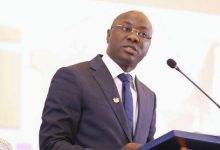Elsewhere in our pages, we have published the concerns of authorities of private universities in the country who say that non-state tertiary institutions are struggling to survive due to unfair regulation, undue competition from public universities, and other challenges.
The authorities comprising founders, vice-chancellors, and other management staff, who were part of a panel discussion at a conference on private University Education in West Africa, held on Wednesday, in Accra, therefore, appealed to the government to create an enabling environment for them to complement the state in the delivery of quality tertiary education to the citizenry.
Organised by the West Africa International Press Limited, it was on the theme “Is the survival of private university education in West Africa under threat? Ghana as a case study.”
Touching on some of their concerns, the founder and Chancellor of the Wisconsin University College, Dr Paul Fynn, pointed out that the abolishment of the affiliation system was rushed, and thereby putting pressure on the private universities to meet new requirements for charter.
“It is totally and extremely wrong to insist on that decision. They should allow public universities to train more professionals to handle the private universities otherwise you are watering down the educational system”, he said.
According to Dr Fynn, private universities depended on bank loans, contrary to the view that they were making gains and alleged that approval of programmes for them went through arduous processes, unlike public universities.
On his part, the President of All Nations University, Prof. Samuel Donkor said, the private universities were under serious threat, citing how they did not enjoy some support given to public universities, for instance, research funds.
He said the Ghana Tertiary Education Commission (GTEC), which regulates tertiary institutions, appeared to have been set up mainly to frustrate private universities given that the public universities were treated differently.
“It is as if it is an agenda to slow down the development of private universities. In fact, some of them have collapsed, others are on life support”, he said and called for equity and fairness in their application of rules.
On the issue of competition, he said, the public universities were now running fee paying courses, matured entry models, and other programmes, thereby denying the private universities their targeted prospective students.
For his part, the Acting Pro-Vice Chancellor of the Pentecost University, Apostle Dr Emmanuel Kwesi Anim stated, the need for challenges facing private universities to be addressed because of the crucial role they played in education.
The Deputy Director of the GTEC, Dr Ahmed Jinapor, said the 86 accredited private universities in the country had 11 per cent (52,112) of the total student population in the country and that the Commission and the Education Ministry were taking steps to address their challenges.
He assured the authorities that private education in the country was not under threat, but robust, and advised them to create a niche for themselves in unique areas such as Science, Technology, Engineering and Mathematics (STEM) to attract more students as well as prepare them for the thriving technology market.
Although, it is reassuring that Dr Jinapor of GTEC responded promptly and dismissed the allegations leveled against the GTEC, the Ghanaian Times would like to encourage the Commission to be more open and transparent in dealing with its stakeholders especially private universities.
It is obvious that there is a great deal of suspicions against the education authorities, particularly the treatments meted out to private universities as against that of public universities.
We do not have any reason to support the assertions by private universities but the fact that they make such allegations point to the existence of some real or perceived unfairness in the system.
Whatever it is, we urge GTEC to give a listening ear to the concerns of the private universities whose contribution to tertiary education in Ghana cannot be overlooked.



